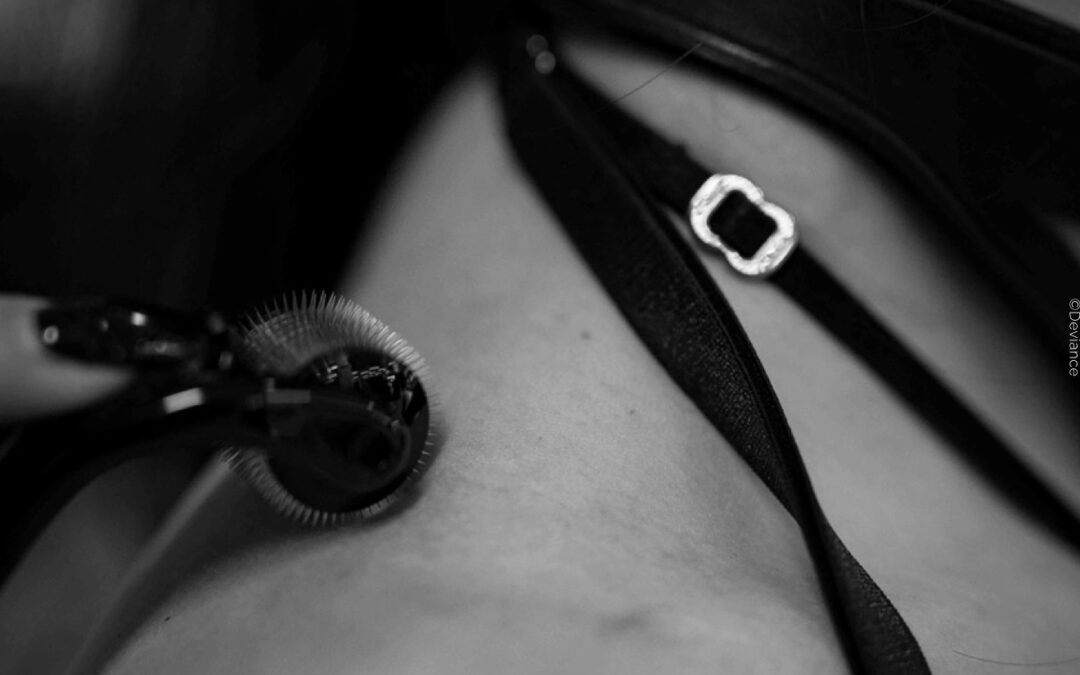Are BDSM players more susceptible to sexually transmitted diseases?
There are no statistics that say that there is a higher risk of contracting sexually transmitted diseases in the BDSM scene. However, because many different surfaces, materials and objects are used in BDSM, there is certainly a higher risk than with so-called vanilla practices. There are many types of games that involve bodily fluids, such as sperm play, golden showers, spitting, licking servants. Many also live poly lives, go to parties, events, swingers’ evenings and therefore have intimate contact with more people.
One method to reduce the potential is safer sex. By using condoms, femidoms, gloves and lick wipes, you protect yourself on the one hand, but also show consideration for current and future partners. Although safe sex protects against most diseases, absolute protection is never guaranteed. It is therefore important to also pay attention to the correct cleaning and disinfection of body, surfaces and equipment.
And even if BDSM cannot always be equated with sex, in addition to the usual transmission routes via body fluids, mucous membranes and smear infections, there is a lot of infection potential for STIs and STDs in BDSM even without vaginal, oral or anal contact.
Example situations for BDSM activities in which STDs can be transmitted
- All types of games that have to do with bodily fluids, i.e. all forms of intercourse regardless of which body opening and whether with genitals or fingers
- Unclean sex toys
- Sex toys that have been previously moistened with saliva
- Touch your face or genitals with your hand if there are other bodily fluids on them
- A bondage rope that comes into contact with the genital area or mouth and is then used without cleaning can also transmit infections
- Pee
- Rimming
- STDs are rarely transmitted through pee games, but more often through spit. So spitting in someone’s mouth is more dangerous than peeing on someone.
- Lubricant is also a transmission route: for example, if you use lubricant from a can for different practices and with different partners, then you can also transmit bacteria and viruses here.
- Anything that can injure the skin: impact, needles, Wartenberg wheel, clamping, pinching, scratching, biting, knife play. Even gripping tightly can injure the upper layers of skin, allowing bacteria and viruses to penetrate.
- Impact tools that have not been cleaned of flakes of skin, sweat or blood from another person, for example, can also transmit infections
- For some STIs, it is enough to share a glass with someone, use the toilet seat after an infected person or use a wet towel, which stores pathogens.
- Another factor are clubs, parties and playrooms: here people often play on the same furniture close together or spontaneously together. Many people already make sure to disinfect the surfaces and put something under them, but areas can still be neglected
Safer sex plus proper cleaning
Because carelessness is the biggest reason for contracting diseases. Of course, in the heat of a session, you don’t necessarily think about disinfecting every single object, swapping toys depending on the partner, putting on gloves and taking other measures. But we should.
- Clean your equipment before and after use and store it safely from contamination.
- When sharing a toy, it should be boiled and disinfected, or at the very least cleaned with a toy cleaner, like this one that also removes protein traces.
- Always use a condom when spontaneously sharing toys
- Use a new condom/licker/glove or femidom for each toy or introduced object on a new partner
- Even when switching from oral to vaginal and/or to anal, a new condom/lick cloth or gloves should be used each time
- Always use new, sterile equipment when playing with needles, staplers, scalpels or other sharp objects. Disinfect the skin twice beforehand and also your own hands, use everything only once and then dispose of it correctly.
- Don’t forget to disinfect your impact tool as well to remove any possible dander, sweat or blood from another person
Other steps you can take
- Clarify your and their status regarding possible sexually transmitted diseases with each partner
- Get tested regularly for sexually transmitted diseases and insist that your partners do the same
- Do not share porous items such as plastic, fabric or suede that cannot be cleaned properly
This was Part IV of the Deviance series on sexually transmitted infections. Also interesting:
STI and STD part: how they’re transmitted
STI and STD Part II: the 8 most common









